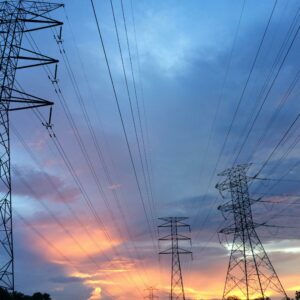A revolution in the West's electric power grid is on the horizon, offering consumers potential reliability and economic benefits. However, those benefits will only be realized if we prevent special interests from hijacking the process.
Can outsiders fix Washington? The ambitious mission of DOGE
“I am hopeful that Congress or the SEC can clarify that the agency’s role should not be to serve as substantive arbiters of shareholder proposals in corporate annual meetings — a role properly resting in state corporate law,” said Jim Copland, senior fellow and director of legal policy for the Manhattan Institute. “I’d also like the SEC...
Prioritizing Energy Means Prioritizing Infrastructure
In the early 1980s, I was a bank manager in Kotzebue, Alaska, 33 miles north of the Arctic Circle. Those were the days of handwritten checks, paper records, and hand-updated documents. When broadband brought high-speed internet to Alaska, all that paper went digital, and residents never looked back—until last month, when an act of nature...
5 takeaways in the EU’s big agriculture (and food) vision
The European Commission published its long-term “vision”for the European Union’s agriculture and food policy on Wednesday, setting out ambitions for a sector that has been at the center of political protests, trade tensions and regulatory headaches. Agriculture Commissioner Christophe Hansen’s paper lays out a roadmap through 2040, promising better conditions for farmers, fairer supply chains, and...
How to Streamline Nuclear Power Plant Construction
Repowering closing coal plants with advanced nuclear represents both an opportunity and a challenge. In the previous blog post of this series, Momentum Grows to Repower Retiring Coal Plants with Nuclear, we detailed the tangible economic and energy reliability benefits of coal-to-nuclear projects. Delivered effectively, they can ensure the preservation of jobs, revitalize communities, and provide...
Trump Starts Energy Dominance Drive With White House Council
President Donald Trump ordered the creation of a White House council focused on steering the US toward “energy dominance,” with the promise of action as soon as next week. “We have more energy than any other country, and now we are unleashing it,” Trump said Friday in the Oval Office as he signed an executive order commissioning...
US paper industry asks Trump to seek lighter EU deforestation rules
The U.S. paper and pulp industry is lobbying President Donald Trump’s administration to ask the EU to declare the United States deforestation-free, a step that could make it easier for exporters to meet the bloc’s new environmental rules. From December, the European Union’s anti-deforestation policy will ban imports of commodities linked to forest destruction. Brussels already delayed the...
US senators reintroduce bill to allow year-round, nationwide E15 sales
U.S. senators reintroduced a bipartisan bill on Thursday that would allow nationwide sales of gasoline with a higher blend of ethanol year-round, a plan that has the support of a leading oil trade group. Senator Deb Fischer, a Republican from Nebraska, introduced the bill with senators including Tammy Duckworth, a Democrat from Illinois, and said...
Low-Energy Fridays: Do we want energy independence or energy security?
President Donald J. Trump recently announced tariffs on imports, which will cover energy commodities like oil and gas to a certain extent. At a glance, this policy may appear to advance “energy independence,” an agenda Trump favored on the campaign trail—but it’s not quite so simple. Defenders of tariffs on energy would point out that they will reduce...
Chairman Capito Questions CCUS Leaders on USE IT Act Implementation, CCUS Project Permitting
Today, U.S. Senator Shelley Moore Capito (R-W.Va.), Chairman of the Senate Environment and Public Works (EPW) Committee, led a hearing on advancing carbon capture, utilization, and sequestration (CCUS) technologies, and examining the implementation of the Utilizing Significant Emissions with Innovative Technologies Act or USE IT Act. During the hearing, Chairman Capito questioned Kevin Connors, Assistant Director for Regulatory...









